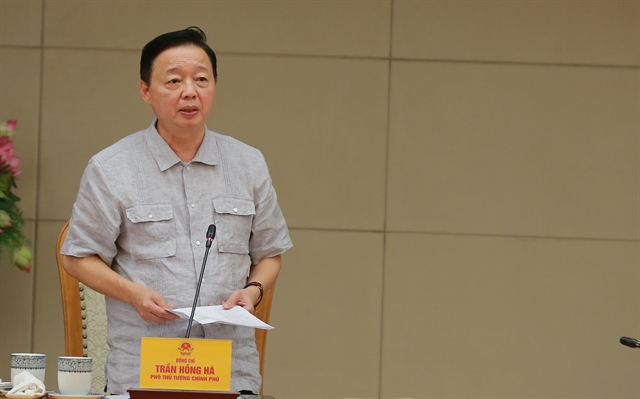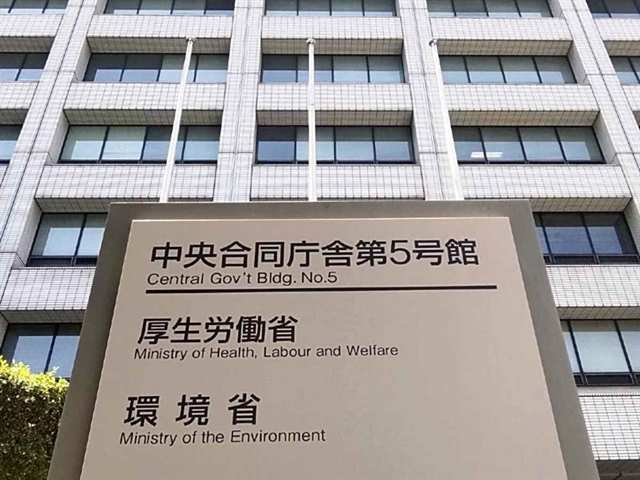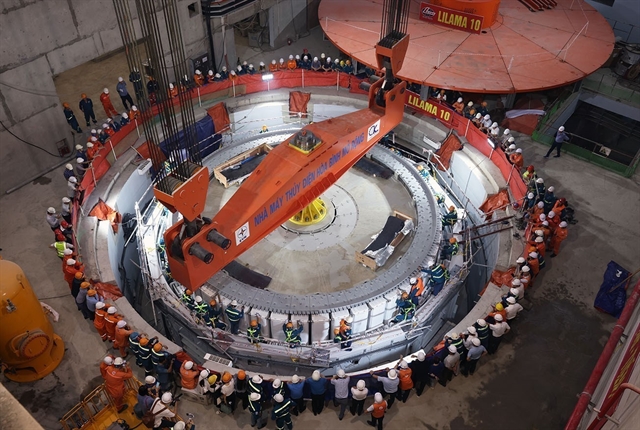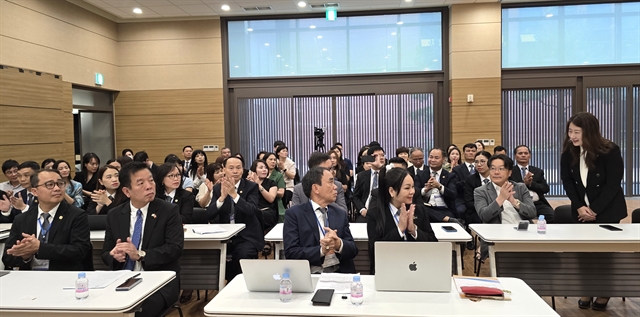 Politics & Law
Politics & Law

 |
| Deputy Prime Minister Trần Hồng Hà gives instruction at the meeting. — VNA/VNS Photo Diệp Trương |
HÀ NỘI — Deputy Prime Minister Trần Hồng Hà has underscored the need to reduce administrative procedures and implement effective mineral management policies to foster sustainable and transparent growth.
Speaking at an online meeting on Monday with representatives from 25 provinces and cities, he discussed the draft decree outlining measures to enforce the Law on Geology and Minerals.
After listening to various perspectives at the meeting, Deputy PM Hà emphasised that the decree must clearly define key issues and provide explicit guidance, ensuring consensus between businesses and regulatory agencies on implementation. He stressed that the process should be straightforward and not require additional documents beyond what is outlined in the decree.
He emphasised the need for the drafting agency to provide clear explanations on comments and review regulations to ensure a comprehensive adjustment of the Law on Geology and Minerals. He highlighted the critical role of geological management, which serves various sectors, from national defense and security to economic development, urban planning, public safety, and climate change mitigation.
To promote technological adoption and streamline administrative procedures, while reducing processing time and costs for businesses, the Deputy PM stated, "We must implement one-agency, one-contact, one-file."
Regarding task assignments within ministries, Deputy PM Hà stressed the importance of adhering closely to the Law on Geology and Minerals. He underscored the necessity of clarity and transparency in job distribution, asserting that "one job should not be assigned to two people".
At the central level, authorities will oversee strategies, planning, inspections, and examinations related to mineral management. A comprehensive mechanism should be established to facilitate investment in surveying, exploration, and assessment of reserves for strategic and essential minerals of national significance.
Regulations governing licensing and mineral reserve assessments must account for both primary and accompanying minerals, ensuring resource optimisation and preventing losses.
Investment in advanced technologies for the extraction of accompanying minerals should be actively encouraged. Transparency and public disclosure will be key to fostering confidence among enterprises in implementation.
Further facilitate localities
According to the report from the Ministry of Agriculture and Environment, the draft decree consists of 11 chapters and 155 articles, detailing 66 provisions of the law and adding 6 implementation measures.
Administrative procedures are being reviewed, streamlined, and simplified to reduce the number of organizations and individuals involved in the process.
The decree also refines the required dossier components, introduces diverse implementation methods, shortens processing times, and reduces fees and charges.
Minister of Agriculture and Environment Đỗ Đức Duy stated that by classifying minerals into four distinct groups, the decree establishes a structured approach encompassing the planning phase, licensing for mineral exploration and extraction, mineral recovery, regulation of mineral activities, and mine closure.
Based on this framework, regulations delegating authority to local governments and administrative procedure reforms are tailored to suit each mineral group.
In regions where minerals have been officially designated as scattered and small-scale deposits, provincial people's committees will grant exploration licenses and validate mineral exploration results.
"The essence of the draft decree is to be more open and favorable to localities," stated Minister Duy.
During the meeting, leaders from various ministries and local authorities engaged in discussions to reach a consensus on certain provisions that had differing viewpoints.
Speaking online at the meeting, leaders of Quảng Ninh, Lào Cai, An Giang, Kiên Giang and Đắk Nông People's Committees clearly stated that localities can meet the requirements set out in the draft decree.
Provinces and cities requested the drafting agency to clarify regulations on accompanying minerals exploitation, especially in cases where the value is higher than the main mineral.
They want to unify a focal point at the central level to realise mineral planning, be flexible in closing mines after completing exploitation depending on each type of mineral, and clearly define the authority of local agencies and individuals in mineral management. — VNS




